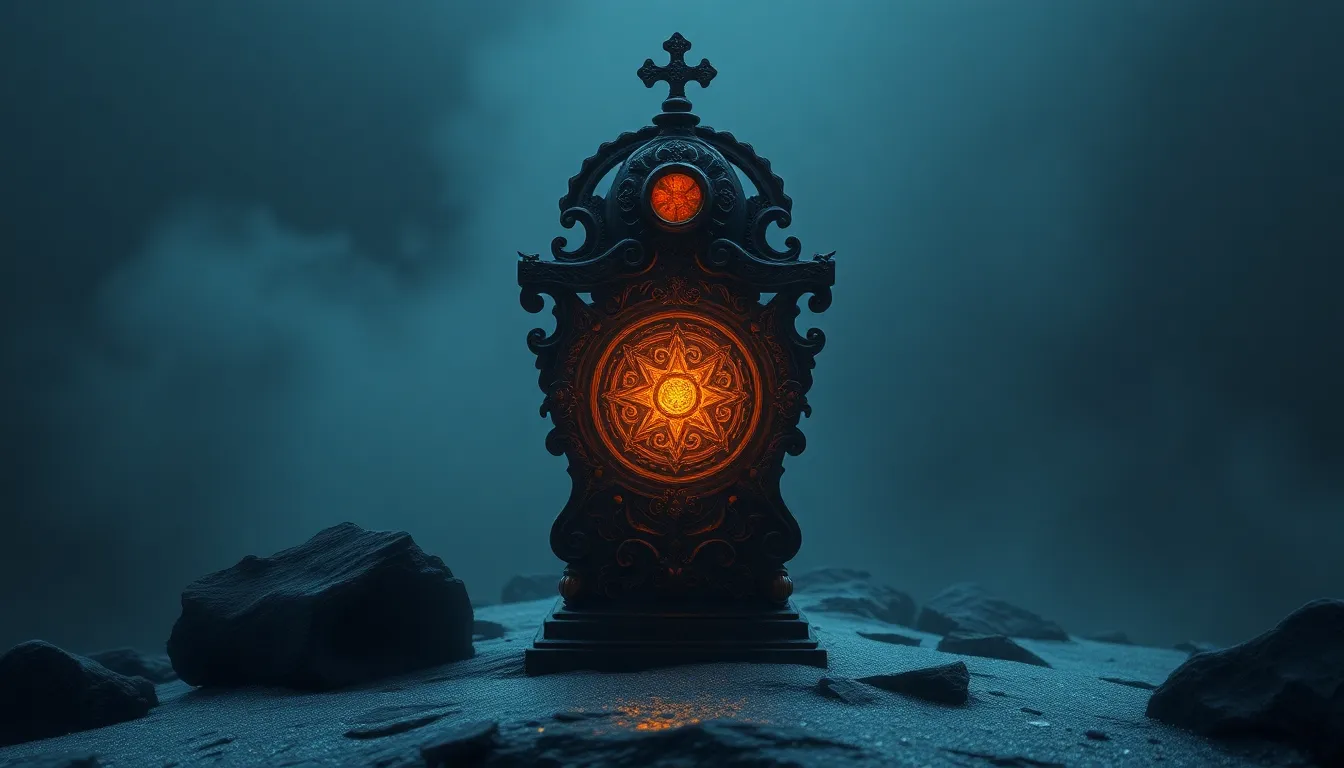Discovering Atlantis: The Lost Artifacts of a Mythical Civilization
I. Introduction to Atlantis
The tale of Atlantis has captivated the imaginations of countless individuals throughout history. This mythical civilization, said to have existed thousands of years ago, is often depicted as a utopian society that ultimately succumbed to its own hubris. The legend of Atlantis originates from the works of the ancient Greek philosopher Plato, who described it as a powerful and advanced society that disappeared into the ocean. The allure of Atlantis lies not only in its mysterious disappearance but also in the numerous interpretations and adaptations it has inspired across various forms of art and literature.
In popular culture, Atlantis serves as a symbol of lost knowledge and advanced technology, sparking intrigue in both scholars and enthusiasts alike. Its narrative has evolved over centuries, transforming it from a philosophical allegory into a subject of serious archaeological interest and speculative theories.
II. The Search for Atlantis: Historical Perspectives
A. Ancient accounts of Atlantis: Plato’s dialogues
Plato first introduced the concept of Atlantis in two of his dialogues, “Timaeus” and “Critias,” around 360 B.C. He described the island as being larger than Libya and Asia combined, situated beyond the Pillars of Hercules (modern-day Strait of Gibraltar). According to Plato, Atlantis was a powerful naval force that eventually fell out of favor with the gods, leading to its sudden demise.
B. Historical expeditions and archaeological quests
Over the centuries, many explorers and archaeologists have sought to validate Plato’s account through expeditions. Notable figures such as the 19th-century explorer Heinrich Schliemann, who discovered Troy, believed that archaeological evidence could unveil the truth behind Atlantis. Despite numerous attempts, the elusive nature of Atlantis has continued to baffle researchers.
C. Notable theories about Atlantis’ location
Various theories have emerged regarding the possible locations of Atlantis, including:
- The Mediterranean Sea, with theories suggesting locations such as Santorini or Crete.
- The Caribbean, particularly the Bahamas, with the Bimini Road often cited as evidence.
- The Antarctic region, proposing that Atlantis was situated in a now-submerged area.
III. The Mythos of Atlantis: Cultural Significance
A. Atlantis in ancient philosophy and spirituality
In ancient philosophy, Atlantis represented an ideal society that ultimately failed due to moral decay. Its story served as a warning against hubris and the consequences of straying from virtuous living. The notion of a lost civilization resonates with many spiritual beliefs that emphasize the cyclical nature of rise and fall.
B. The impact of the Atlantis myth on art and literature
Throughout history, the myth of Atlantis has inspired a wide array of artistic expressions:
- Paintings and sculptures depicting the grandeur of the lost city.
- Literary works that explore the themes of lost civilizations and utopias.
- Films and television series that adapt the Atlantis narrative into various genres.
C. Modern interpretations and adaptations in media
In contemporary media, Atlantis has been portrayed in various forms, from animated films to science fiction novels. These adaptations often reflect modern concerns and themes, such as environmentalism and the dangers of technological advancement. The enduring nature of the Atlantis legend speaks to its ability to evolve and resonate with new generations.
IV. The Role of Artifacts in Uncovering Atlantis
A. Definition and significance of artifacts in archaeology
Artifacts are tangible objects created by human beings, and they play a crucial role in understanding past civilizations. In the context of Atlantis, artifacts can offer insights into the culture, technology, and daily life of its inhabitants, should they ever be discovered.
B. Types of artifacts associated with Atlantis
The search for Atlantis has led to speculation about various types of artifacts that might be associated with this lost civilization, including:
- Tools and weapons indicating advanced craftsmanship.
- Architectural remnants suggesting sophisticated engineering.
- Artwork that reflects the cultural and spiritual beliefs of the Atlanteans.
C. Theories on the technological advancements of the Atlanteans
Many theories suggest that Atlanteans possessed advanced technology, possibly superior to that of contemporary civilizations. These speculations often include:
- Energy sources that harnessed natural elements.
- Architectural techniques that enabled the construction of monumental structures.
- Maritime technology that allowed for extensive sea travel.
V. Key Archaeological Discoveries Linked to Atlantis
A. Overview of significant finds
Several archaeological discoveries have been linked to the search for Atlantis, including underwater sites and ancient ruins that echo the descriptions found in Plato’s dialogues. Sites like the underwater ruins off the coast of Yonaguni, Japan, and the submerged city of Dwarka in India have sparked debates about their potential connections to the Atlantis myth.
B. Case studies of specific artifacts and their implications
One notable case study includes the discovery of artifacts in the Mediterranean that resemble those described in ancient texts. These findings often lead to reinterpretations of historical timelines and cultural exchanges between ancient civilizations.
C. The role of technology in discovering and analyzing artifacts
Modern technology has revolutionized underwater archaeology, allowing researchers to explore previously inaccessible areas. Tools such as sonar mapping, remotely operated vehicles (ROVs), and 3D scanning have enhanced our ability to locate and analyze potential artifacts linked to Atlantis.
VI. Theories of Atlantis’ Fall: Natural and Human Factors
A. Proposed catastrophic events leading to Atlantis’ demise
Various theories suggest that Atlantis met its end due to natural disasters, including:
- Earthquakes that caused land shifts and tsunamis.
- Volcanic eruptions that buried the island.
- Climate change leading to environmental collapse.
B. The role of human activity and societal collapse
Some theories posit that the Atlanteans’ downfall was also influenced by their own actions, including overexploitation of resources and social stratification that led to societal tensions.
C. Comparisons to other ancient civilizations and their falls
The story of Atlantis parallels the fates of several ancient civilizations, such as the Maya, the Indus Valley civilization, and the Roman Empire, all of which experienced decline due to a combination of environmental, social, and economic factors.
VII. Modern Expeditions and Research Initiatives
A. Overview of current explorations and underwater archaeology
Today, researchers continue to explore the possibility of Atlantis through modern expeditions. Underwater archaeology has gained momentum, with teams employing advanced technology to search for submerged sites that might hold the key to uncovering the truth behind the legend.
B. Technological advancements aiding the search for Atlantis
Innovations in technology, such as satellite imagery and GIS mapping, have transformed the approach to archaeological exploration. These tools allow for more precise investigations and the ability to survey large areas efficiently.
C. Notable researchers and their contributions to the field
Prominent figures in the field of Atlantis research include marine archaeologists and historians who have dedicated their careers to uncovering the mysteries of this lost civilization. Their contributions range from fieldwork to theoretical frameworks that guide current explorations.
VIII. The Debate: Fact, Fiction, or Somewhere in Between?
A. Perspectives from historians and archaeologists
The academic community remains divided on the existence of Atlantis. Some historians view it as a cautionary tale, while others believe it may be based on real events or places. Archaeologists continue to seek evidence that may validate or debunk the myth.
B. Critiques of the Atlantis narrative and skepticism
Critics argue that the lack of concrete evidence for Atlantis suggests that it is purely a myth. They emphasize the importance of critical thinking and caution against attributing historical significance to unproven theories.
C. The allure of the Atlantis myth in contemporary society
Despite skepticism, the myth of Atlantis remains alluring, continuing to inspire new generations. It serves as a reminder of humanity’s quest for knowledge and understanding of our past, as well as our relationship with the environment.
IX. Lessons from the Legend of Atlantis
A. Insights into human civilization and environmental stewardship
The story of Atlantis prompts reflection on the rise and fall of civilizations, highlighting the importance of environmental stewardship and sustainable practices. It serves as a cautionary tale about the consequences of neglecting our planet.
B




